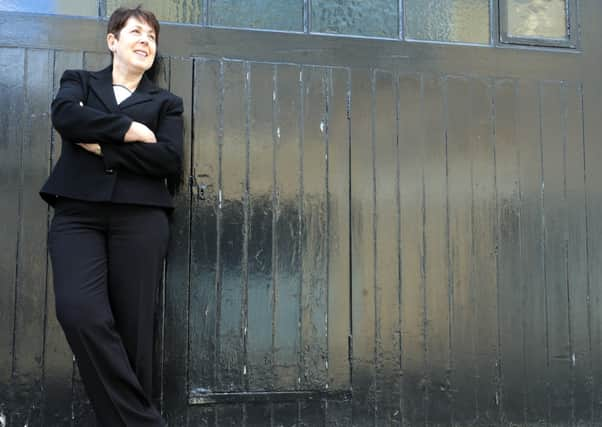Polly Purvis: opportunity lies in 'internet of things'


ScotlandIS chief executive Polly Purvis Purvis believes that web-connected smart devices, or the “internet of things”, will open up a wide range of new opportunities but also a number of serious challenges, not least of which is the ever-growing threat of cyber-crime.
The head of Scotland’s trade body for the digital technologies sector, started her career in the world of banking, where she joined Royal Bank of Scotland’s Williams & Glyn arm after graduating in agriculture and food marketing from Newcastle University in 1975.
Advertisement
Hide AdAdvertisement
Hide AdShe adds: “Artificial intelligence and voice recognition is getting a lot better, and there’s a lot of stuff happening in data science, thanks to the work of the guys at Data Lab and Censis, the Scottish innovation centre for sensor and imaging systems. In Aberdeen they’re talking about the next generation of oil and gas as the industry tries to address a whole series of challenges.”
Purvis also says the healthcare and financial technology sectors present massive opportunities for Scotland, “but very often it’s something that comes out of left field that turns out to be a real success”.
She adds: “You never know what’s going to come out and be successful, and that’s exciting in itself. But we still need more people, not just to start their own business but to come and work in the industry. We need a wide range of skills and there’s just not enough people.”
Polly says that she fell into working in Scotland's tech sector by accident.
“I moved into working with the Scottish Development Agency before it was Scottish Enterprise, where they were investing in small businesses,” says Purvis during a visit to Aberdeen.
“The move into tech was complete serendipity. I had taken a career break when my daughter was born and I stared part-time as a project manager with the Scottish Software Federation, which went on to become ScotlandIS. As they say, I’ve never looked back.”
Growth
The digital technologies sector, which employs more than 70,000 people north of the Border, is a “great place to be” says Purvis, pointing to the “hugely exciting” deals last year that saw fantasy sports operator FanDuel merge with US rival DraftKings and fellow Edinburgh firm Skyscanner acquired by Chinese giant Ctrip in a move that valued the travel search engine at about £1.4 billion.
“That’s generated a huge amount of self-belief for the tech sector in Scotland, because there are lots of people around saying ‘if they can do it, so can we’.”